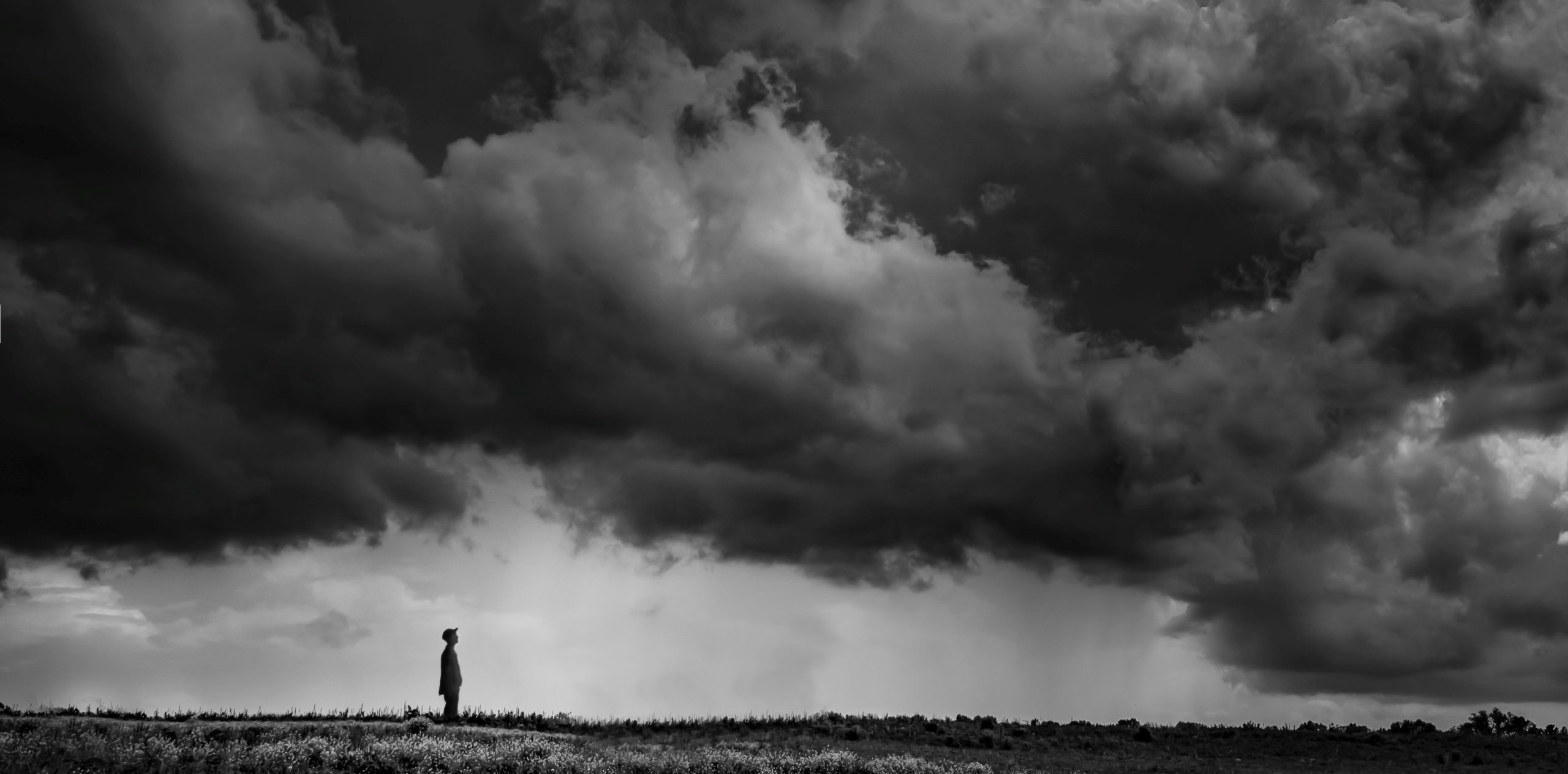
Chapter 1: From Little Dreamer to Political Pariah
A Little Dreamer by Yangtze River
I still thank my mom for giving me this nickname. She nicknamed her four sons by the dwarfs’ names from “Snow White and the Seven Dwarfs”. The nicknames of my older brothers were Doc, Grumpy, and Dopey. My mom called me Happy because I laughed immediately after being born. She said that everyone’s nickname applied to his personality. It turns out to be true. I always had wonderful times in my childhood. Even when I was pushed into the abyss of confusion, anger, and helplessness when I was a teenager, I could still adjust myself back to the joyful mood. Thank you very much, mom.
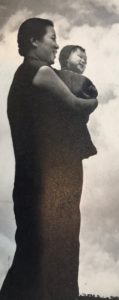
All the bedtime stories were happening in a sunny world over the rainbow, filled with friendship and love. However, outside of mom’s embrace was a war-torn world. At the time when I was born in Hong Kong in 1939, my father was working for the Ministry of Railways of the Republic of China. After the outbreak of World War II, the Ministry called him back to the mainland for various assignments. So, my father entrusted his family to his brother, who was a professor at Yenching University. My mom then took us to Beijing and lived by the Weiming Lake in the university. My brothers still remember the scene of us attending a Christmas party at the home of John Leighton Stuart, the first President of Yenching University. I was too young to remember all the details. However, the pleasant times did not last for long. In 1941, the Japanese soldiers closed the campus of Yenching University and my uncle lost his job. Fortunately, my mom found her own brother, so we moved to an old residence in downtown Beijing. Year in year out, we lived in a semi-isolated world.
One day, our small courtyard suddenly became to be lively. Guests gathered and talked about our father. It turned out that Japan surrendered, and the Ministry had assigned our father to work at the Railway Bureau in Wuhan City, Hubei Province after the victory. Our mom would take us there to unite with our father. We left Beijing in the summer of 1947, when I was eight years old. The first step of our lengthy journey was to take a train from Beijing to Tianjin and stay with my uncle’s family for a few days. The following steps of my mom’s plan were to take an ocean ship from Tianjin to Shanghai and then change to a river ship to Wuhan along the Yangtze River.
When the ship went far away from the Tianjin Port and it left only the horizon between the sky and water visible in the mist, my mom took me back to the cabin. The first thing I did was to unwrap the gifts from my cousins, and my favorite one was a commemorative album. I hoped that my mom would be the first person to write an inscription on it, so I immediately handed the album to her.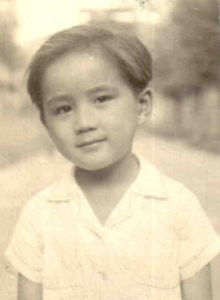
She just put down one word HONESTY with a large font on the paper, followed by an em dash and a note: “My mother gave this to me, and I am passing it to you now.”
My mom said nothing afterwards. Instead, she just held my hands and looked at me in my eyes with a smile. After a few seconds she said: “You may go find your recent friends and have some fun now!”
As soon as we boarded the ship, I made a group of unknown friends. They were all college students from Shanghai who were on summer vacation. Besides the usual questions that adults often asked children, they asked me what books I had read outside of school. Since this was the first time that someone outside our family showed an interest in my readings, it immediately prompted my desire for conversation. When I talked about several articles I liked from the anthology of ancient essays, the atmosphere of teasing kids gradually disappeared, and they spoke to me seriously. They asked me what I wanted to do when I grew up and encouraged me to devote my life to the prosperity of the Chinese nation after I grew up. The most frequent words they mentioned with excitement were liberty, equality, and fraternity.
It was the first time that I heard of the poem of Sándor Petőfi:
“Liberty and love/ These two I must have. / For my love I’ll sacrifice/ My life./ For liberty I’ll sacrifice/ My love.”
I did not know why the word liberty immediately brought a tremendous shock to my mind. This journey made the sea become a powerful presence in my childhood. That poem engraved the idea deeply into my soul ever since.
……
A Teenager Entrapped by Mao’s Open Conspiracy
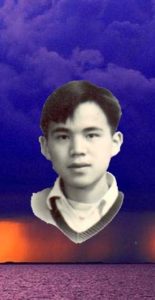
……
It was in Xi’an in the early spring of 1957, and my diary was also full of the breath of spring: What I heard after entering the university was the party’s call to everyone to help the Communist Party to rectify. Chairman Mao also once again proposed that “say what you know; those who speak are not guilty, and those who hear it are full of warnings; if there is error, correct it, and if there is nothing, then add encouragement.” Such a far-sighted and generous principle is remarkable, Chairman Mao is so great! I must respond to Chairman Mao’s call and actively help the party rectify the style.
Suddenly, everything changed, and it was a huge 180-degree turn.
One day in the early summer, Liu, the secretary of the CCP branch of our grade, called for a meeting of our class. Different from the past. There were a dozen students from other classes taking part in the meeting. In addition, Sun, the secretary of the CCP’s general branch of the Geology Department, also came. Sun’s speech announced that the Anti-Rightist Campaign had begun. He then said: “There is someone in your class who has been colluding with other rightists in the school to attack the party. It’s time now for all of you to expose him!”
A student immediately said: “Rao Jilong is the guy. In the past few months, he was very active in attacking the party.”
……
This was the first criticism meeting against me in the early summer of 1957.
About two or three days after the first meeting, they started a series of criticism and struggle meetings. They informed me in advance that they would not allow me to interject words anymore, and that I must listen to criticisms and then reform my thoughts.
The ban on my right of speaking inexplicably made me feel funny. Every time in such a meeting I imagined that I became a released balloon. It fluttered into the sky, looking down at the venue from above and watching one after the other puppets who walked around reading manuscripts or shouting slogans. Like that, one of Heinrich Heine’s poems titled “Loreley”, would always unknowingly ring up in my ear: “I cannot tell the reason/ Of sorrow that fills my heart/ A fable of bygone ages/ Haunts me and will never depart.”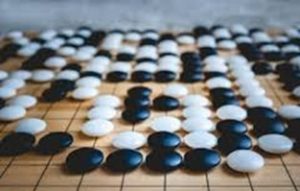
It is awfully hard to describe my life outside of the meetings. My routine running exercise used to begin at dawn. However, I had already been in the sports field when the sky was still dark every morning during that early summer. And I had continuously increased the running distance. The only normal hours for me were to read my mother’s letters. Every time I read a letter from my mother; I took out the birthday gift my father gave me when I was nine years old. That was a Go game record by Hideya Honinbo, Japan, I would then play chess on the 19×19 grid line in the sky. This became my habit until the end of the Cultural Revolution.
……
This was Mao’s open conspiracy, from where my life as a political pariah started.
Tombs and Oasis in the Abyss
……
The one who supervised my work was an old miner with white hair, Master Qian. As soon as it got dawn, we went down the mine well. Passing through the fork of a mine cart rail in the main tunnel, a very narrow tunnel appeared. There were two empty mine carts parked at the entrance of the alley. Master Qian handed me an enormous basket with a pickaxe in it.
“Your task is to crawl to the end of the tunnel and to dig for coal,” he said, “our leader said, you must fill these two mine carts today.”
When I put the enormous basket on my back, he suddenly asked, “Kid, how old are you?”
“Eighteen.”
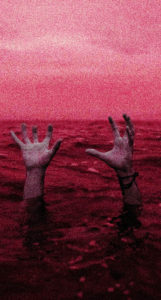 “I worked inside that tunnel for a long time yesterday and reconnected the ventilation ducts. I also did a careful inspection and reinforcement of the ceiling and all the wooden pillars. I will do security checks frequently in the future, don’t worry.” He said.
“I worked inside that tunnel for a long time yesterday and reconnected the ventilation ducts. I also did a careful inspection and reinforcement of the ceiling and all the wooden pillars. I will do security checks frequently in the future, don’t worry.” He said.
The tunnel’s ceiling touched my head after few steps. No wonder he said to crawl in. It was dark all around, and I crawled forward depending only on the lamp on my head. Crawling and crawling, the tunnel became wider. A messy working end appeared in front. Here I can dig coal on my knees with my head raised. And the feeling of suffocation was also reduced. I speeded up whenever I crawled back pulling the basket full of coal. Entering the main tunnel, I can take a deep breath, which was a great enjoyment.
I tried to count the number of ins and outs, but soon the time froze. When a can of water and two Wotou on the railroad sleepers came to my sight, I felt extremely thirsty. One mine cart was more than half loaded, and the other was still empty. I quickly crawled into the alley again.
Backed to the ground, even the light of the moon and stars felt dazzling. Day after day, month after month, I had crawled under the ground naked. I was crawling and digging. Could it be a light at the end of the dark tunnel? Would the freezing time to be melting slowly under my pickaxe?
……
All disasters like the suffering of Doug’s bride originated from Mao’s three red flags, which caused famine and killed tens of millions of Chinese people. As a young person who did not know the truth, I could only struggle in perplexity.
I did not understand at the time why all these years suffered were still regarded as lighter punishments. Many years later I realized that among the million rightists persecuted by the CCP, I belonged to the lucky group for sure. They sent most rightists to Laogai, which means reform-through-labor, and the typical one was the Jiabiangou labor camp next to the Gobi Desert 30 miles away from Jiuquan City, Gansu Province. Rightists detained over there worked 12 to 16 hours a day. Right after the great famine began, the food ration was further lowered for them. The rightists often had to eat wild vegetables, mice, and lizards that they could find. They also ate the leaves and grass seeds during the winter, and even the dead bodies when they were desperately hungry. In the autumn of 1957, when we went to Jiaoping Coal Mine, there were about 3000 rightists taken to Jiabiangou and only 500 of them survived after three years. Among the dead there were at least three persons that I heard of who returned to China from the United States in the 1950s, including an engineer, a doctor, and a professor. Doctor Dong among them was only 35 years old when he died of hunger in November 1960. His wife from Shanghai found that her husband’s body had been eaten, leaving only the skeleton. With too many deaths in the camp, the burial of the deceased became hastier and hastier, and some skeletons ended up being exposed to the wilderness and stretched for a mile.
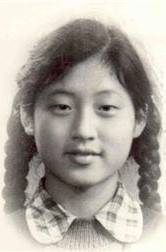
There was an oasis unexpectedly in the skeletons-laden abyss, and a light was really lit at the end of the dark tunnel. In the spring of 1958, I sent a letter to a girl named Mao Yunqing. We had been schoolmates in elementary school and had exchanged letters since we left Wuhan. I told her that the CCP had criticized and punished me, but I never mentioned the details of my suffering while digging coal underground. I wrote in my letter to her:
It was your letters that healed my scars. / It was your passion that resonated within my heart. / Why don’t I grab your hands? / My hands with yours clasped. / As you said to me when we were little, / Nothing can tear us apart!
In the early autumn of the same year, Yunqing suddenly appeared in front of me. Since that time, she worked at Xi’an Aviation Industry and Technology School until I graduated from university. Today, as I write this, 64 years later, our hands are still clasped.
The Perplexities of the Political Pariah
……
One early Sunday morning, I walked out of the south gate of the campus alone. Looking west, it was Babaoshan Cemetery in the distance. After walking for about 10 minutes, the campus wall turned at a right angle. The long wall stretches northward, and one can’t see the end at a glance. There was a large piece of wasteland between the campus and Babaoshan. After walking not far, I sat down on a rock next to a pit facing west. There were a few mounds ahead and seem to be a few deserted graves near the Cemetery. I dumped an enormous pile of diaries from my backpack into the pit and lit them with a match, was sitting there staring at the rising flames.
I took out a few pieces of paper from my pocket, which were the last few pages of the diary that I tore off when I got up. Then I read the first one gently: Colleagues are all congratulating me for the screening. I really should thank the Party and Chairman Mao. But the new conclusion still says that I am anti-Party and anti-socialism ideologically. I must be stricter with myself and reform my thoughts. However, what is real socialism? What exactly does the party want? … The screening materials also emphasize Rao Jilong is a typical individualist. Perhaps this conclusion is correct.
Then the second paper: Someone hid behind the thick Dang’an system and shot at me. How despicable and cowardly…
 The third paper: Where the problems come from? The experience in the Ningshan County reform-through-labor team a few years ago has made me unforgettable for a long time. I really don’t understand what policy they are implementing. I hope that the Party Central Committee and Chairman Mao can find out about these problems as soon as possible.
The third paper: Where the problems come from? The experience in the Ningshan County reform-through-labor team a few years ago has made me unforgettable for a long time. I really don’t understand what policy they are implementing. I hope that the Party Central Committee and Chairman Mao can find out about these problems as soon as possible.
The diary on the fourth paper: Why are my strings heavy? Why are my flute pipes silent? Why: I am wandering in melancholy, and not to embark on a new journey sooner?
The fifth paper: Lao Tzu, is absolutely right: One who knows others has knowledge. One who knows the self has wisdom. Conquering other needs force. Conquering the self needs strength.
I carefully put these papers into the fire and stared at the fading flame quietly.
Someday my mother had talked with me about people’s attitudes toward the Five Black Categories.
“In their eyes, all five are the same.”
“Yeah, they are all reactionaries and dangerous guys.”
“The problem of rightists is a matter of thought. How could people put them together with robbers and rapists?” She said.
“Yeah, people would hate them more by putting them behind the criminals.”
Hearing my ridiculous tone, she said seriously, “How could you still speak like this? This is not a joke!”
“Mom, don’t worry. They have screened me!”
“Does it matter? If you had known this, why would you bother to have done what you did? How did I teach you when you were a kid? Why could you become a rightist!” She questioned me.
“Why? It’s because of that word!” I blurted out.
However, I immediately regretted what I just said, though it was too late. My mother didn’t seem to pay much attention to it and switched to the topic promptly.
I realized that deep conversation would not only cause her greater pain, but also put her at risk. But not talking deeply would make her misunderstand and hurt her. This made me feel guilty for my mother until today.
My mother asked the right questions. The screening did not really change my fate. I was still a political pariah after screening. A few years later, soon after the Cultural Revolution began, the ominous shadow from the Dang’an threatened me again.